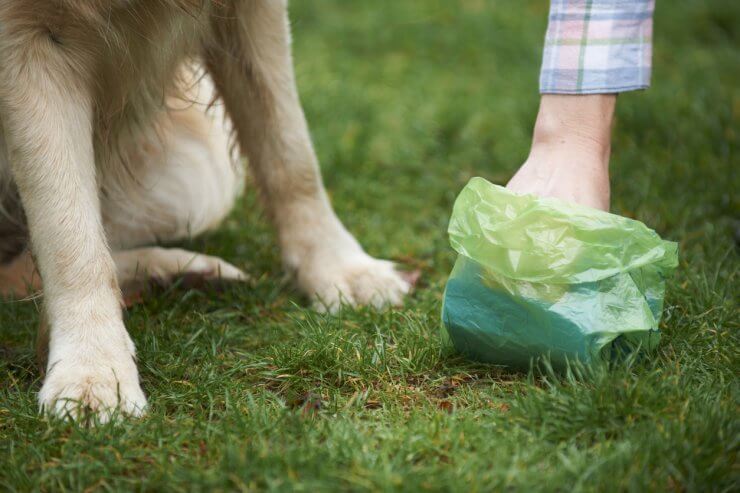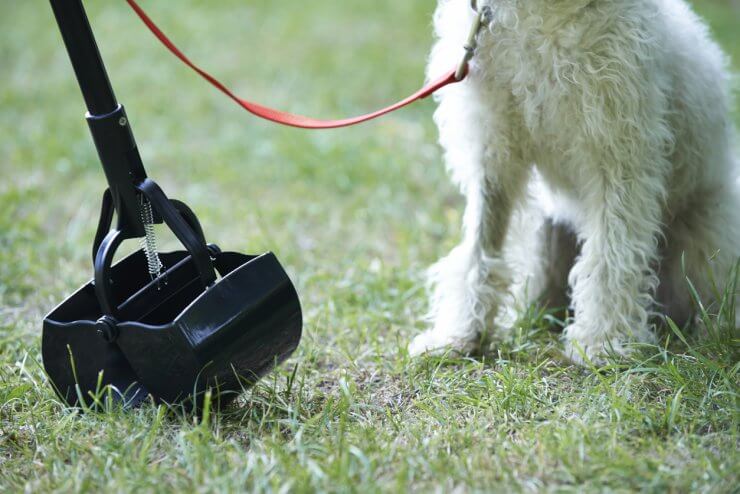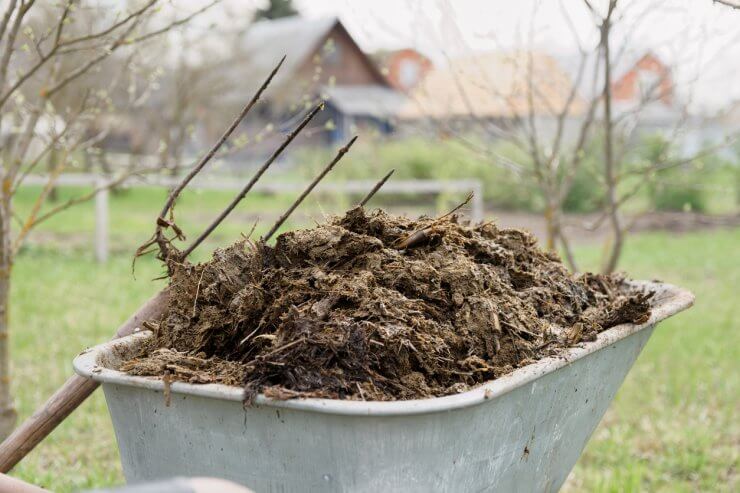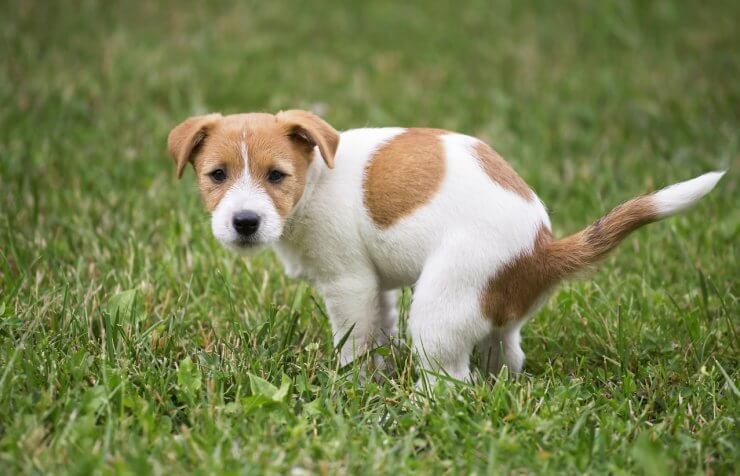
When I first started composting, I felt a surge of angst any time I was about to throw something in the garbage. Can I compost it? Is this really garbage? At first, it only happened in the kitchen with food scraps and some paper products. Then it migrated into the garden with grass clippings and leaves. Soon I was looking at everything through a lens of decomposition. So it was no surprise that when my dog Napa took his morning constitutional, I immediately raised an eyebrow and thought “Can you compost dog poop?”
I knew that different types of animal manure are used in composting and fertilizer combinations, but I hadn’t read too much about dog poop. My first stop in researching anything that has to do with vegetable gardening healthy and safe crops is the USDA website. I typed “Can you compost dog poop?” into their search bar. The first result provides a thorough pamphlet on the topic. I’ve outlined some of that information as well as additional guidelines and precautions to consider.
Discover 7 top tips for growing, harvesting, and enjoying tomatoes from your home garden—when you access the FREE guide The Best Way to Grow Tomatoes, right now!
Can you compost dog poop?
The answer is yes, but you can’t use the compost on food crops like vegetables, fruits, and herbs. Compost made with dog waste should only be used in flower beds, trees, shrubs, new lawns, or other landscaping uses.
The reason why you can use manure from, say, cows, is because it’s aged in a hot pile first, and also they don’t have diseases in their manure that are transmissible to humans like dogs and cats do.

Can you compost dog poop safely?
Personally, this isn’t something I plan to try.
Even if you plan to use your dog waste compost on non-edible plantings, you still run the risk of exposure to parasites and bacteria. E. coli, salmonella, ringworm, and tapeworm are just a handful of bacteria and parasites found in dog waste. The thing about dog (and cat) waste, is that you can catch their diseases and parasites. The key to properly composting dog poop is consistently high temperatures. Your compost pile must reach 165 degrees Fahrenheit for at least five consecutive days before it is safe from bacteria and parasites. Even then, there’s always a risk, which is why dog waste compost should only be used on non-edible plantings if you choose to go that route.

Are there any benefits?
There are some benefits to using dog waste compost. For one thing, it reduces the amount of landfill waste each year if you’re using poop bags or if it goes in a garbage truck. For reference, a dog produces just north of 270 pounds of waste each year on average. Not only does composting dog poop reduce landfill waste, but it’s also a good source of soil nutrients. Dog waste is rich in nitrogen. Carbon-rich materials like sawdust or straw help break down the nitrogen into a useable soil additive.
Another benefit of composting dog waste is that it reduces the pollution and contamination of surface water. When dog poop isn’t picked up and thrown away it leeches into rain run-off and other surface water, which you don’t want running into your food garden. That surface water attracts flies and other pests which contribute to the spread of bacteria and parasites.

Some final dog doo-doos and don’ts
- Do consider your yard space and inhabitants. If you have a small yard, many pets, and/or small children running every which way, a dog waste compost might not be the safest option.
- Do wear gloves. Always wear gardening gloves when working with compost, but especially when working with compost made with dog poop.
- Don’t use dog waste compost on edible plants. Don’t do it. It is not safe.
- Do wash your hands regularly after gardening, especially when dealing with compost.
- Don’t start a dog compost pile if you can’t commit to the upkeep. Remember, it has to stay over 165 degrees Fahrenheit for over 5 days straight. That means keeping accurate records of temperature.
- Do give your good boy or good girl a nice belly rub for me!
Do you compost dog poop? What is your preferred method? Let me know in the comments.
Discover 7 top tips for growing, harvesting, and enjoying tomatoes from your home garden—when you access the FREE guide The Best Way to Grow Tomatoes, right now!





Does adding septic enzymes to the dog poop in the composter Make it safer?
Does giving your dog heartworm medicine, which also controls some wormy parasites, Make the dog poop compost safer.
Is it safe to use around the yard where the dogs coexist?
It seems that enzymes can help to break down dog poop faster but we still don’t think its safe to use on edible crops.
I have started using a doggie digester for my dog waste. It is working well. Good instructions on You tube from Canadian lady.